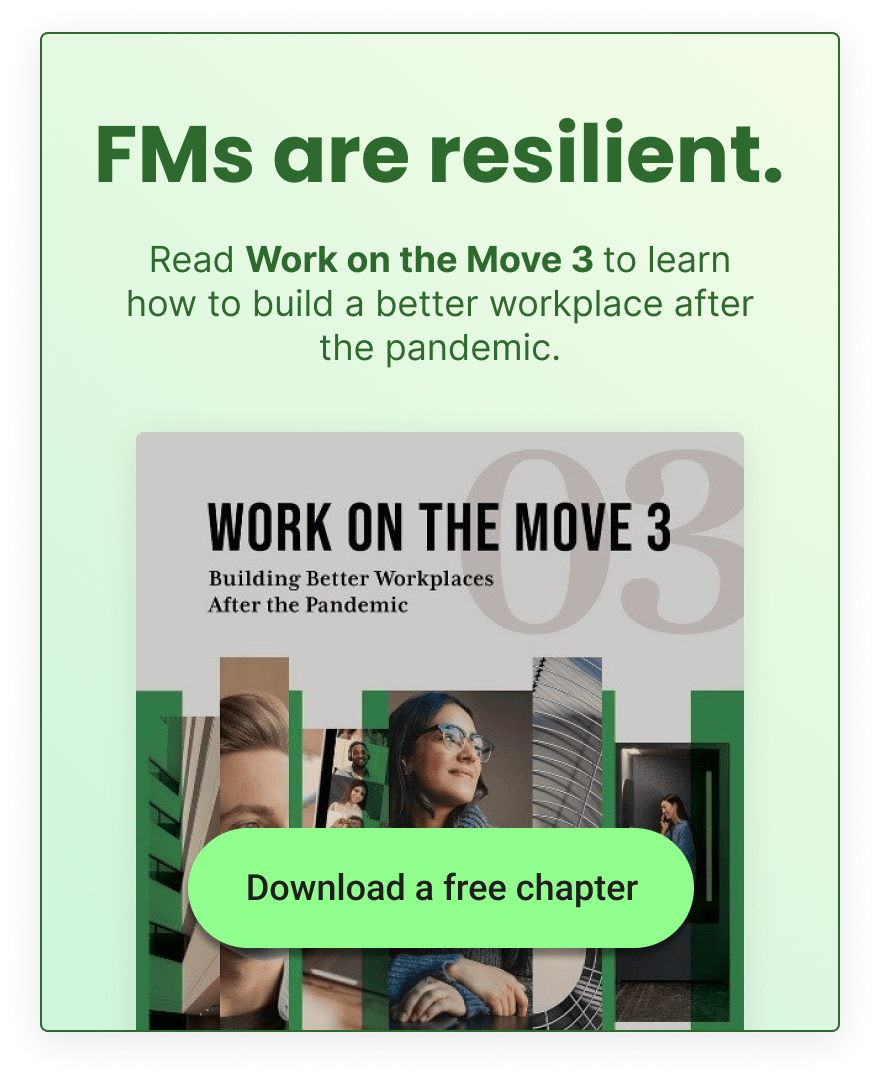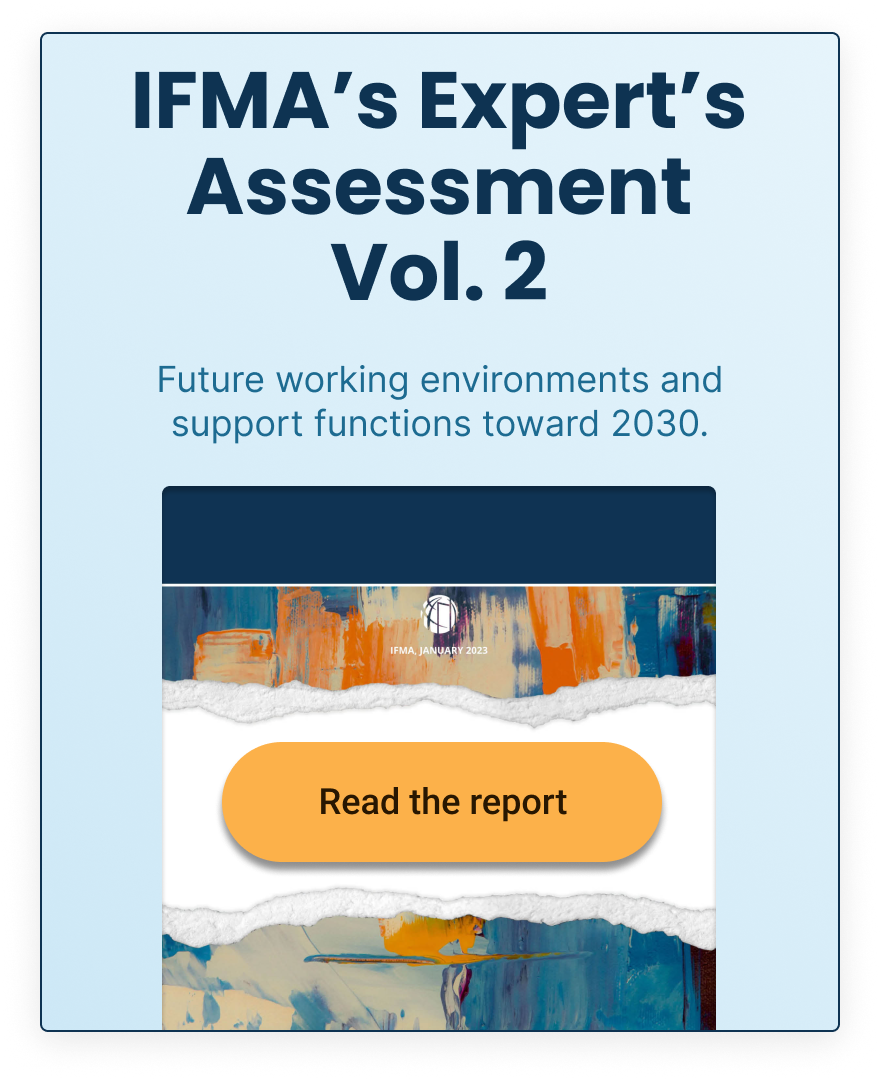Top 10 Skills Every Facility Manager Needs to Succeed

What strengths and skills are employers seeking from facility manager candidates? Here are 10 skills you need to move up as a facilities leader.
10 Skills Every Facility Manager Needs
By: Elizabeth Dukes
Facilities Management is a diverse field that asks a lot of those who work in it. The professional, interpersonal, and even emotional demands that FMs face every day are significant, and they can seem to come from all directions.
So here at the dawn of a new year, we thought we•d reflect on the strengths and skills that are most in-demand in the modern FM marketplace. They•re the Top Ten Attitudes & Aptitudes that•ll empower you to take on each day•s challenges like an FM champ.
10. Numerical Know-How
Most FMs aren•t economists, mathematicians, or CPAs. But budgeting and financial planning are nevertheless important parts of the job. You need to know what your company•s key metrics are and how to calculate them. The more financial insight you have, the more effective a manager you•ll be.
But even if you were never a •mathlete• in school, you can learn the skills you need to understand high-level business budgeting. Critical thinking goes a long way. In addition to numerical know-how, employers look for someone with an analytical approach, a commitment to getting (and improving) results, and good old-fashioned business sense.
9. Legal Eagle-bility
A superhero FM doesn•t need a law degree any more than a math degree, but having an appreciation for the impact that federal, state, and local law have on your facility is important. Whatever industry you find yourself in, chances are good that numerous statutes and regulations apply to everything from HR to day-to-day operations.
Understanding occupational Health & Safety laws are especially important commercial facilities leader skills. Familiarity with OSHA regulations and other applicable law is a real benefit for any FM, especially those who manage high-risk sites or who work in a heavily regulated field. E911 is obviously important too. You need to understand your responsibility for making sure emergency contact is properly coordinated with physical location. It•s also good to know the basic principles of your state•s tort law, especially where premises liability, personal injury, and employment law are concerned.
8. Insider•s Insight
As an FM, you probably know a lot of about the Facility Management field. But what about your company•s industry? Are you an expert in their universe as well as your own?
Let•s say you•re the FM for the second-busiest hospital in your city. Sure, you know the building and how to run it, but how much do you know about healthcare? You don•t need an M.D., but understanding how the medical industry operates will enable you to diagnose (pun intended) your facility•s problems. Armed with an insider•s insight, you•ll be better poised to take your hospital to #1.
You also need to know your own company•s specific vision, values, and goals. How do they fit into the larger, industry-wide picture? How do they differentiate themselves? What objectives are they targeting within their market? Employers need a facilities manager who can help guide them along a strategically charted, goal-oriented path.
7. A Go-with-the-Flow Attitude
A lot of leadership is intuitive, but good instincts can be learned. Are you generally easygoing, or are you naturally •on edge•? Either personality type can serve you well in different situations, but flexibility is an especially valuable trait for FMs.
Ours is a dynamic profession. Every day is different, and problems pop up without warning. If that kind of environment excites you, you•re already two steps ahead. But if uncertainty is a stressor, it doesn•t mean you can•t be the best of the best among FMs. It•s never too late to learn to take a deep breath and recalibrate your approach to the unknown.
6. Emergency Reflexes!
Part of going with the flow means keeping calm in an emergency. If you•ve never faced a true emergency, you might not know how you•d naturally respond. Some people panic; others become instinctively solution-oriented and level-headed. As a general rule, •cool and collected• is the most effective approach to even the direst emergency. Planning is part of that. If you already know exactly how to react when an urgency arises, you won•t be caught off-guard. So be prepared
5. Project Leadership
Facility Managers often double as Project Managers. Or maybe you work alongside a designated PM. Whatever the task at hand may be, yours is a position of leadership. You•ll need to set goals, motivate your workforce, monitor performance, and measure results.
While there•s no real substitute for experience, even a newcomer to project management can learn a lot about leadership by taking a seminar or reading a book. It helps to have project management software you can rely on too, and that brings us to #4...
4. IT Savvy
FMs may not need a background as software engineers, but the reality is that today•s FM world is more technology-reliant than ever. The more quickly you embrace that, the more valuable you•ll be in your field. Everything from room reservations to asset monitoring and facility maintenance is managed on the computer today (and, increasingly, on smartphones and tablets). IT plays an invaluable role in the way FMs communicate with their workforce, customers, and coworkers as well.
Your employer will look to you as the expert in facility management software. They likely don•t have time to educate themselves on the latest developments, so they•ll depend on you to keep the facility on solid technological ground. That•s why you•ll want to keep yourself apprised of the latest trends in FM software development. Make sure your IT platforms are situated to solve problems and eliminate waste.
3. Sustainability
Sustainability continues to trend not only as a buzzword but also as an emerging corporate value all around the world. That•s especially true in the facilities sector. A sustainable building is an efficient resource for any company, so your employer will count on you to keep your facility as green as can be. Start looking for ways to enhance efficiency. Make sustainability a goal and take proactive steps toward it. It•s good for your professional portfolio, the environment, and the bottom line. Win, win, win!
2. Cross-Networking
Companies consist of numerous divisions charged with specific sets of responsibility. Often, these areas of oversight overlap. That•s especially common in Facilities Management because the physical workspace intersects with almost everything that happens inside it. That•s why FMs need the ability to network laterally across the entire organization with IT, HR, administration, other executives, etc. Take a step back and think about all the ways your job complements the work others are doing elsewhere in the company. What can you do to improve those relationships?
1. People Skills
At the end of the day, Facilities Management is all about the people you serve. Your ability to connect with, engage, and inspire the others around you will make the most determinative difference in your performance as an FM. The good news is that people skills are among the most easily acquired traits on this list. Much of it comes down to your own perspective.
Respect is the cornerstone of every productive working relationship. Communication matters, too. Don•t just convey information; make sure your meaning is understood (and, in turn, make sure you understand others as well). Identify the objectives of the people you work with, learn what motivates them, and commit yourself to forging a professional connection that inspires each party to bring out their very best.
You•re a leader in a •people profession.• What could be more exciting than that? Make it your goal to be the best FM you can be in 2014. Using our list as a guide, seek out the skills that will benefit you the most and commit to making this year the most successful one yet... not only for you but also for all the people you serve!


